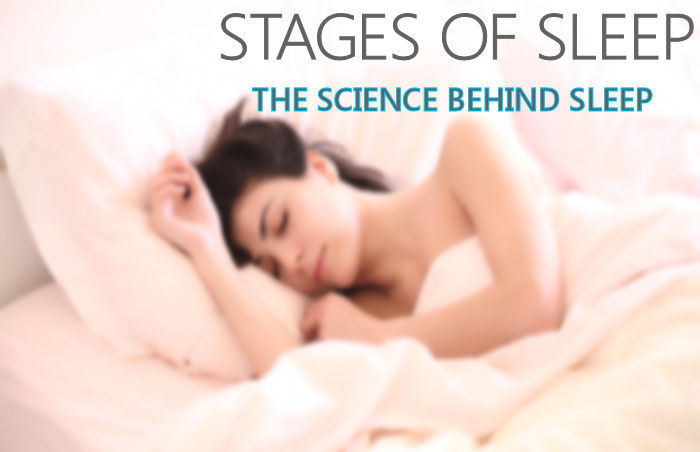 Stages of Sleep
Stages of Sleep
Stages of sleep have been long studied and more is continuing to be learned about each stage. Current consensus is that there are basically five stages of sleep. Sometimes stages are combined due to similar qualities of the stage. Other times additional stages of sleep are added to explain periods of time that are associated with sleep but hard to identify as actual sleep. An example of this is that a “waking stage” might be identified as the time prior to stage one.
Introduction Stage One
The stages of sleep begin with stage one. This stage is the interim between being awake and being asleep. During this stage of sleep, people are still perceptive for the most part. A person in the first stage of sleep might experience a daydream type dream though their eyes are closed. It is calm restful state in which regular patterns of breathing occur. Hypnogogic hallucinations and myoclonic jerks are common in this stage of sleep. What this means is sometimes people have a sensation that they are falling followed by muscle contractions that cause a jerk. Brain activity during this short stage which lasts usually less than ten minutes, is defined by short quick Beta Waves that transition into slower Alpha Waves.
The Beginning Stage Two
As the body enters the second stage of sleep which lasts around twenty minutes or so, the brain experiences faster but steady brain waves called Sleep Spindles. The person undergoes a slowing of heart rate and lower body temperature. This stage of sleep leaves the person less aware of the environment around them and prepares the way for stages 3 and 4.
The Slow Wave Stage Three
Delta brain waves in the third stage are deeper and slower as the person falls into a deeper sleep. It is this deeper sleep of stage three that allows the body to perform functions such as repairing muscle tissue, developing new tissue, building muscles, repairing muscles, building bone and fortifying the immune system. Sometimes this stage is defined as Slow Wave Sleep due to its slower brain wave activity and it is this that makes waking a person in the third stage more difficult. Lower blood pressure happens in the third stage of sleep and as muscles relax the breathing rate also declines. Stage three leads into stage four, each lasting anywhere from five to fifteen minutes.
The Slow Wave with Deeper Sleep Stage Four
The fourth stage of sleep has most of the same attributes of the third stage so this is why they are combined at times. Stage four is essentially the end of stage three which leaves the person in a deeper sleep that can affect the alertness of the of person if awoken. Cognitive skills are also impacted for a person who is suddenly awoke from stage four, leaving them less able to perform. It is during stage four of the stages of sleep, that one might experience a higher likelihood of sleep walking, bed wetting or confusion upon waking.
Non-REM Sleep Stages One Through Four
The first four stage of sleep are referred to as Non-REM Sleep stages and they all must occur before reaching the fifth stage of sleep, REM. Though the stages of sleep are marked as stage one through five, they aren’t actually completed in order. A person will not proceed to stage two until experiencing stage one, stage three until going through stage two, or stage four without completing stage three. While it is true that there are five stages, stage five doesn’t follow stage four until stage three and two are repeated a few times. Interesting enough, a person cycles through all five stages up to five times each night with each cycle lasting approximately 100 minutes. Non-REM stage s of sleep are considered “quiet sleep” due to slower brain activity.
Stage Five: REM
REM is considered to be “active sleep” as brain activity is increased. Eyes move rapidly in this stage and respiration, or breathing also intensifies. This stage is also called the “paradoxical stage” because as the brain activity is increasingly active, the muscles relax and those which are moved voluntarily such as the hands, arms and legs, are incapacitated. This phenomenon, called Muscle Atonia, renders the person unable to move in a manner that might cause injury during the dream state. REM is the stage of sleep in which more vivid dreaming takes place. This stage lasts the longest of all five stages of sleep, lasting in the neighborhood of an hour long and starting roughly an hour and half after initially starting the sleep cycle. Muscle spasms in the face, fingers and legs may take place during the REM stage of sleep.
Why Stages of Sleep is Important?
Each stage of sleep in the sleep cycle is necessary. Because a person cannot reach the final stage without the occurrence of each of the preceding stages of sleep, a person cannot reap all the benefits of sleep without completing all five stages. The benefits of getting a sufficient amount of sleep, without interruption, are many. Sleep is essential for memory storage, muscle development and recovery, bone growth, the proper function of your immune system and more. There are many factors that can negatively impact your ability to get through all stages of sleep in the sleep cycle. Medications, stress, and sleep disorders can all impact your ability to reach each stage and thus continue into the following stages. While there is still a lot of studying being done in the science of sleep, there are some things that we know can be done to help you get better sleep. Identifying the issues that you have is key to learning how you can address those issues to get a better quality of sleep. The CDC has stated that the one third of American adults are reporting they don’t get enough sleep and the National Sleep Foundation has outlined some things that can be done to help you separate yourself from that statistic.
Bedroom Environment
Paying attention to your bedroom environment is a good place to start. Sometimes your ability to fall asleep is directly related to your surroundings. Varying or articulated noise can keep you awake, while the right smell in your room could assist you into falling asleep. Staying asleep can also be tied to the bedroom environment if your sleep is interrupted by sounds or lights. Even your mattress can affect your sleep. If you aren’t comfortable enough to start stage one of the stages of sleep without delay, you might miss out on getting through all five stages of sleep or reduce the number of times that you do in the night.
Rest Right Mattress can help you with a mattress, adjustable bed or even finding that perfect pillow that will aid you in falling and staying asleep through the night. Check out our offering and give us a call to discuss any particular sleep concerns that you have. There are many sleep products that can help with snoring, circulation, and other issues that might be keeping you up. We will work to help find you solutions to your sleep product needs.
Sources:
Webmd
Verywell
Healthcommunities
American Sleep Association
 Stages of Sleep
Stages of Sleep




